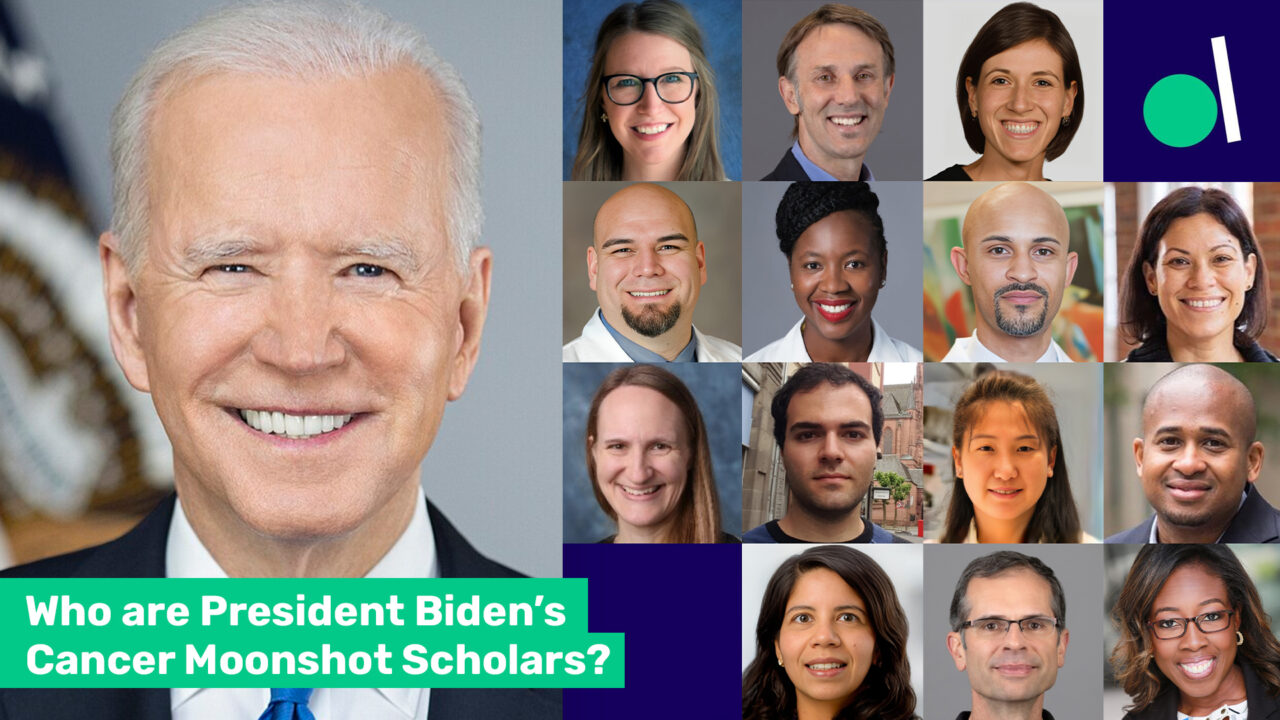On October 29, 2024, the Biden Cancer Moonshot initiative announced funding for 11 early-career researchers and research teams, awarding over $6 million to support innovative approaches in cancer prevention, treatment, and diagnosis. This effort is part of President Biden’s Unity Agenda, which includes various priorities aimed at improving the lives of Americans, such as combating the opioid epidemic and enhancing care for veterans.
“The Cancer Moonshot Scholars represent the next generation of innovators that will drive us to achieve President Biden’s bold goals to improve outcomes and boost support for those facing cancer. By ensuring that we are investing in groundbreaking ideas from across the country, we can improve cancer prevention, early detection, treatment, and care and save and extend millions of lives.” – said Dr. Danielle Carnival, Deputy Assistant to the President for the Cancer Moonshot and Deputy Director for Health Outcomes at the White House Office of Science and Technology Policy.
The Cancer Moonshot
In 2016, President Joe Biden launched the Cancer Moonshot, an ambitious initiative with one clear goal: to accelerate cancer research and cut cancer death rates by 50% over the next 25 years. Backed by the 21st Century Cures Act, the initiative secured $1.8 billion in federal funding over seven years to accelerate cancer research and treatment breakthroughs.
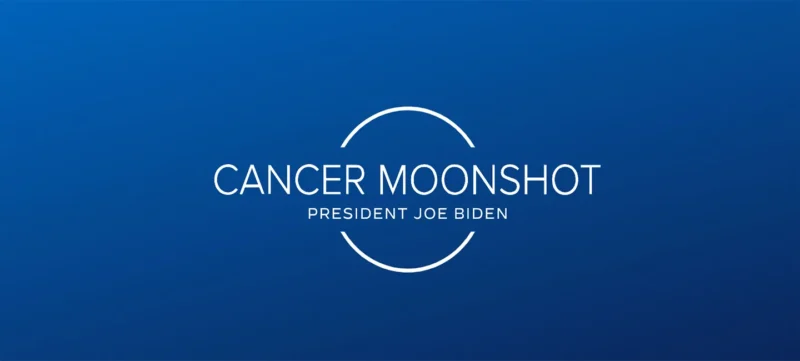
The Cancer Moonshot focuses on advancing cancer research at an unprecedented pace, aiming to make 10 years of progress in just 5 years. It promotes collaboration between scientists, research institutions, pharmaceutical companies, and patient advocacy groups, all working together to find cures faster and improve patient outcomes.
Through the Moonshot, spearheaded by the National Cancer Institute (NCI) over 70 programs and 250 research projects have been supported, driving advances in critical areas like immunotherapy, childhood cancer research, and early detection. These efforts also prioritize reducing health disparities, ensuring that cancer care reaches everyone, regardless of income or location.
The Cancer Moonshot Scholars program
In 2022, President Biden launched the Cancer Moonshot Scholars program to support early-career researchers across the United States, aiming to enhance diversity in cancer research. The initiative focuses on accelerating progress toward ending cancer as we know it by fostering innovative approaches in cancer prevention, treatment, and diagnosis.
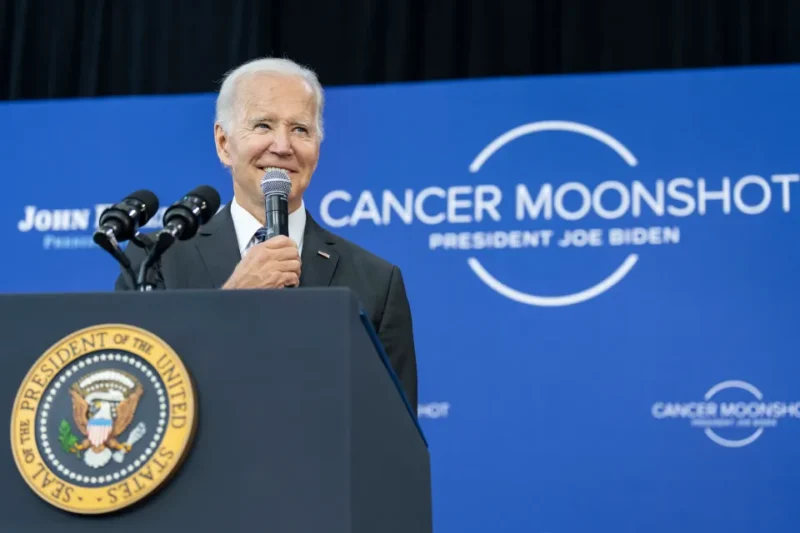
The inaugural cohort of scholars was announced in August 2023, with a commitment to funding diverse researchers who represent various backgrounds. This program is designed to build a cancer research workforce that reflects the diversity of America and addresses disparities in cancer care.
The Cancer Moonshot Scholars program exemplifies the Biden-Harris Administration‘s dedication to advancing cancer research and improving outcomes for all patients, particularly those from underrepresented communities. By investing in the next generation of innovators, the initiative aims to drive significant advancements in understanding and treating cancer.
Who are Cancer Moonshot Scholars (and Research Teams)?
Hermioni Amonoo, MD, MPP, Brigham and Women’s Hospital will evaluate the impact of phone-delivered psychosocial support in stem cell transplantation survivors for improving anxiety and depression symptoms.

Ramon Francisco Barajas, MD, Oregon Health & Science University will advance new strategies to monitor and more effectively treat glioblastoma, a deadly brain cancer, through enhanced imaging to better understand the factors responsible for the growth and survival of primary brain tumors.

Miriam Bornhorst, MD, Hayk Barseghyan, PhD, Lurie’s Children’s Hospital of Chicago will advance diagnostic approaches in pediatric brain tumors through optical genome mapping to detect structural variants.
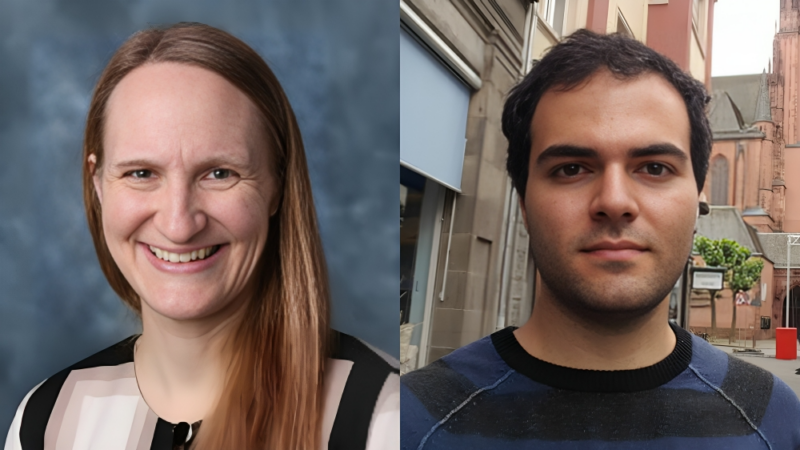
Loretta Erhunmwunsee, MD, City of Hope will examine the impact of structural racism – including pollution exposure and residential segregation – on African American non-small cell lung cancer incidence and progression.

Neha Goel, MD, Memorial Sloan Kettering Cancer Center will examine whether structural racism and perceived discrimination are associated with worse breast cancer outcomes, in part, through regulation of genes that respond to adversity and resulting in more aggressive tumor biology.

Dennis Jones, PhD, Boston University will improve anti-tumor immunity in advanced breast cancer by targeting solid stress, the compression of blood vessels in tumors.
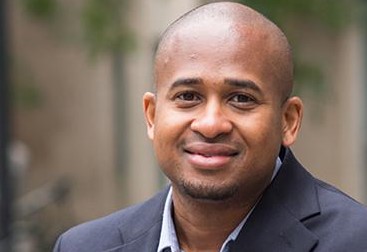
Richard Phillips, MD, University of Pennsylvania will develop a framework for novel therapeutic approaches for diffuse midline glioma, a devastating brain cancer, by investigating the cancer’s molecular mechanisms.

Laura C. Pinheiro, PhD, Weill Medical College of Cornell University will study the disparities and social determinants of health that drive cardiovascular outcomes in Black and White cancer survivors to inform interventions designed to eliminate racial disparities and improve outcomes.

Chelsey Schlechter, PhD, MPH, Guilherme Del Fiol, MD, PhD, and David W. Wetter, PhD, MS, Huntsman Cancer Institute at the University of Utah will provide critical data on the impact of implementation strategies in increasing access to an evidence-based intervention to reduce obesity in community health center patients.

Kandy Velazquez, PhD, University of South Carolina at Columbia is finding a better way to treat the loss of skeletal muscle mass and function in people facing cancer through a deeper understanding of the immune mechanisms that drive this loss.
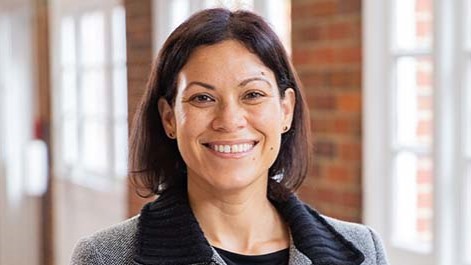
Haijiao Zhang, MD, Oregon Health & Science University is researching a better way to treat acute myeloid leukemia through a deeper understanding of the disease’s cellular and molecular mechanisms.

NCI Center for Cancer Health Equity (CCHE):
“Please join us in congratulating the new cohort of Cancer Moonshot Scholars!
The Biden Cancer Moonshot announced the second cohort of Cancer Moonshot Scholars earlier today and awarded $6 million in the first year to 11 early career researchers and research teams working in cancer prevention, treatment, and diagnosis.
We are proud to lead the Cancer Moonshot Scholars program at the National Cancer Institute (NCI), with active participation from a trans-NCI steering committee and support from the White House’s Cancer Moonshot initiative.
Read on to learn more about the important program and about the new cohort of scholars.”
Why President Biden Values Cancer Research So Much: The Story Behind Cancer Moonshot
President Biden’s 11 Cancer Moonshot Scholars 2023


